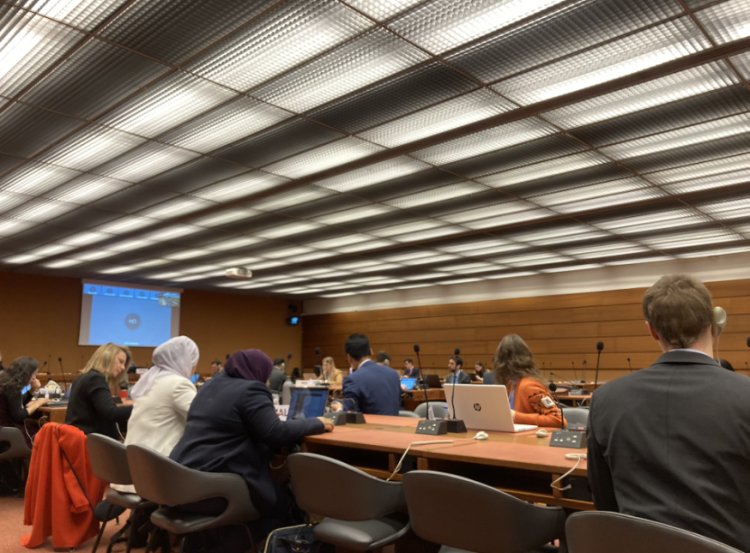Economic Sanctions on Iran have Dramatically Impacted Healthcare access in the Country

The Institute for Protection of Women’s Rights (herein after ‘IPWR’) hosted a parallel on Human Rights in Iran. The panel focused on healthcare access in Iran, specifically the impacts of sanctions on individuals in need of medicine and medical attention. Chaired by IPWR, the panel included representatives from the Iran Autism Association, the Iranian Thalassemia Society as well as the Iranian Society of Hemophilia.
Discussion centred on Iran's healthcare system, and the devastating impact of the economic sanctions imposed by the United States since 2018. The sanctions have led to shortages of essential medicines and medical supplies, making healthcare access difficult for many Iranians. The impact of the sanctions on patients with rare blood disorders like thalassemia and hemophilia has been particularly severe.
Representatives from both the Iranian Thalassemia Society and Iranian Society of Hemophilia detailed the reports of patients unable to access the medications and medical supplies they need to manage their conditions, leading to a deterioration in their health. Some patients have resorted to buying medications on the black market or traveling abroad to receive treatment, which is not only expensive, but an often a risk to their life and health itself. Both representatives, spoke to the importance of the right to health and called for action from the United Nations, to address the impact of sanctions on everyday citizens.
In response to the healthcare crisis, the Iranian government has taken several measures to try to alleviate the impact of the sanctions on patients with thalassemia and hemophilia. This includes setting up a special committee to oversee the import of medical supplies and equipment and increasing funding for the healthcare system. However, these efforts have been hampered by the continuing economic crisis, and the impact of the sanctions on the country's ability to import necessary supplies.
The representative from the Iranian Society of Hemophilia also highlighted the disproportionate impact of these sanctions on women requiring medical care. Stating “Embargo is not just a political word. For me, embargo means another girl is worried about controlling her menstrual bleeding problem and about dying from her hemophilia”.
The impact of the sanctions on Iran's healthcare system has also contributed to the 2023 uprising in Iran. The protests, which began in January 2023, were sparked by harsh violations of women’s rights, however, have grown to address a range of issues, including economic hardship, corruption, and political repression. However, the healthcare crisis was also a significant factor. Protesters expressed anger at the government's failure to address the healthcare crisis, and the impact of the sanctions on their ability to access medical care.
As Iran continues to face unrest, calls for change must be sure to include society’s most vulnerable, and acknowledge the unrightful impact of sanction on patients with thalassemia, hemophilia, and autism. underscores the devastating impact of the sanctions on the health of the Iranian people. Panellists at the parallel event stressed that every individual has the right to health, and that it is critical that the international community takes action to ensure that patients with medical disorders have access to the medications and medical supplies they need to stay alive.




 GHRTV
GHRTV 




























